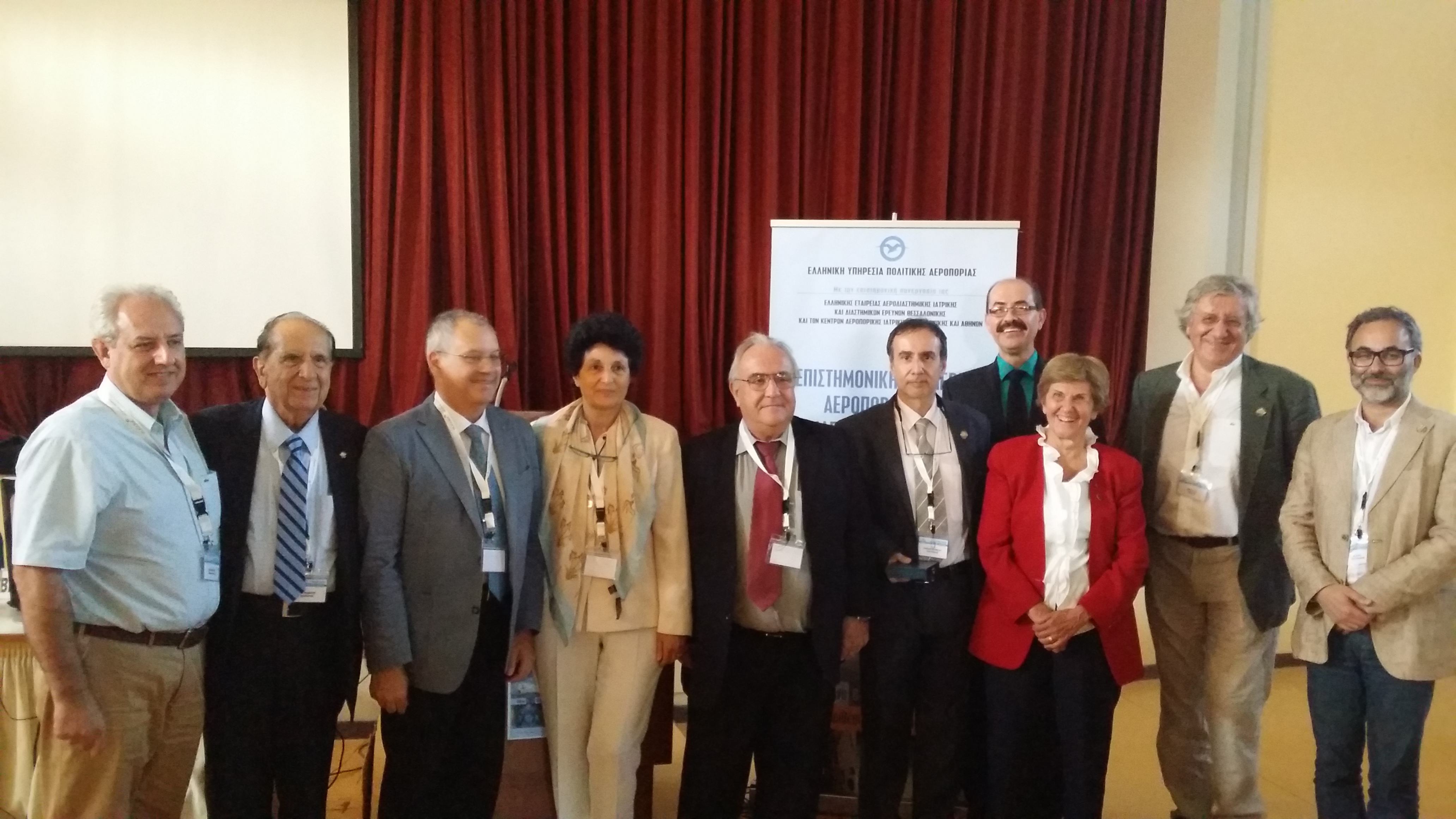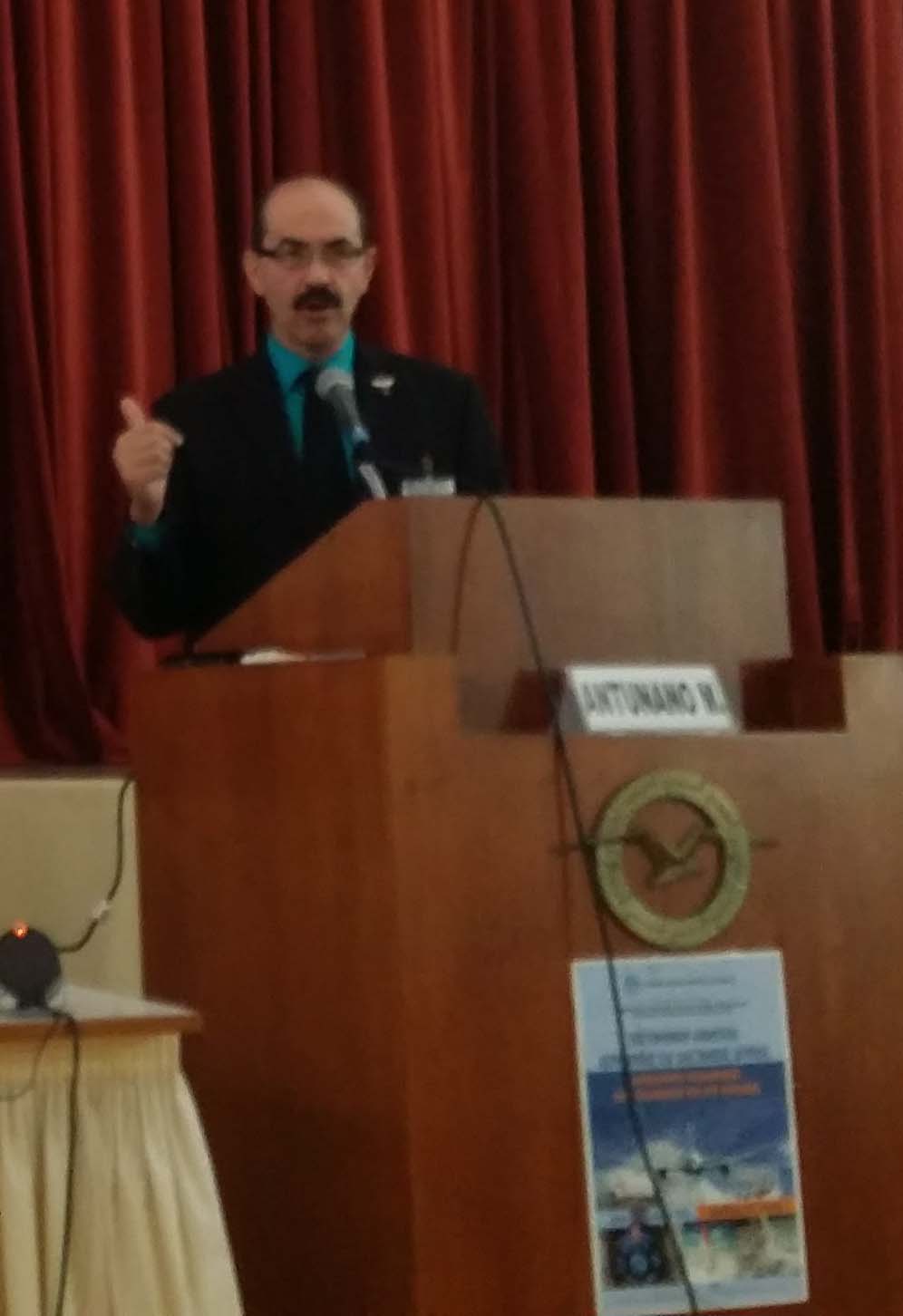HCAA - Athens Scientific Conference
“Human Limitations in Aviation and Space Medicine”.
Of special interest were completed the work of the two-day Scientific Conference on the theme
“Human Limitations in Aviation and Space Medicine” organized by the Aero-Medical Department of the HCAA with the scientific collaboration of the Hellenic of Aerospace Medicine and Space Research Society of Thessaloniki and the AeroMedical Centers of Thessaloniki and Athens.
HCAA Governor Mr. Lintzerakos Konstantinos opened Conference and accentuated the importance for the Administration of the HCAA, in the role of Aviation Medicine for the flight safety and prevention of incidents/accidents in Civil Aviation.
The opening ceremony continued with greetings from the organizers. First distinguished speaker was Dr. Melchor Antuñano, Director of the Civil Aerospace Medical Institure (CAMI) of the USA, who presented his experience and positions of Civil Aviation Authority of USA on issues such as “Human Factors and Safety Issues”, “Security and Survival in Civil Aviation” and “New trends in Aerospace Transport Technologies”.
Themes relating to flight safety were developed by both medical and technological standpoint, as well as the causes of air accidents and clever ways to avoid them, by the President of the Hellenic Civil Aviation accident investigation Committee Mr. Athanasios Binis. The President of the Organizing Committee of the Conference and head of the Aero-Medical Department of the HCAA Dr. Odysseas Papaefthymiou analyzed the structure of Aero-Medical System of HCAA, his role in Flight Safety in Civil Aviation and the new challenges for the Flight Safety.
A presentation of incidents that resulted in a loss of the fitness of pilots was followed, by physicians of Aero-Medical Center of Thessaloniki and also representatives of Aviation Medicine Center of Athens, talked about the basic eye examination of pilots and their training program to hypoxia.
At the end of the first day, a variety of aspects of Aviation Medicine was developed, such as: Pilots’ Psychiatric Assessment and analysis of aviation accidents, while valuable was the contribution of the appeals magistrate Mr. Papadelis Lazaros in “Criminalization of aviation accidents”.
The first day ended with the filing of the experience of the researcher and member of the Greek Society of Aerospace Medicine, Mr. Evangelos Kaimakamis, from his stay in Antarctica Concordia base and his participation in Bio-science experiments with a unique photos presentation.
The second day was opened by the Director of Aviation Medicine of the USA CAA, Dr. Melchor Antuñano with the presentation, discussion and reflection around the passenger flights into space, to continue with the pioneer presentation and technologically advanced medical applications. Many of them reminiscent of science fiction, while others raise a host of ethical and social issues, such as genetic selection, remote control drain and reading thinking.
A round table on the theme: “ Human Physiology in Space” was followed and speakers were Dr. Chrysoula Kourtidou Papadeli, Dr. Joan Vernikos, Prof Felice Strollo, MD and Dr. Stefan Blanc, all with a great history in the field of Aerospace Medicine and participation in space missions and research programs.
With the research in Space, was given the opportunity to study the human body without the influence of gravity factor. “We have been able to see why the astronauts once they arrive in space present with rapid pace all the symptoms of ageing, such as osteoporosis, muscle atrophy, bone loss, sleep disturbances etc and why these symptoms revert to normal levels within a few days. And if the aging symptoms disappear once astronauts return to earth, could we stop the progression of aging on Earth? Which is this magical power that can keep us healthy throughout our lives, why we have abandoned it and which are the consequences of this abandonment?” mentioned Mrs. Kourtidou-Papadeli and then her research team from Thessaloniki presented for the first time the results of the experiments of the Greek participation in cooperation with the European Space Agency (ESA) at DLR-Cologne . During this investigation, is given a new twist on brain function in the REM phase of sleep, sleep disturbances and how we can control the brain in sleeping with new methods applied in AUTH by Professor P. Bamidis and his team in cooperation with the Hellenic Aerospace Medicine and the space research of Thessaloniki as well as the hormonal disorders that govern sleep. The Prof Felice Strollo mentioned in hardening of blood vessels as a result of lack of exercise and inactivity and by the Director of NASA presented a parallel road between Space and aging and suggested workarounds.
There were also research data in similar conditions proportional of space, but on Earth.
The day proceeded with the deposit of personal experience by the cosmonaut Dorin Prunariu Dimitri, about his space travel, who participated in basic life science research missions and presented some of them.
At the end of the day, there was the presentation of the book “Keeping youth until the deep young” by the writers Dr. Kourtidou-Papadeli and Dr. Joan Vernikos and the workshop ended with the speeches of Dr. Kourtidou-Papadeli, Dr. Odyssea Papaefthimiou and the Director of Flight standards and General Director of Air Transportations of Greece Mr. Christos Papageorgiou on behalf of Mr. Konstantinos Lintzerakos, Hellenic CAA Governor.

Prof. P. Bamidis, L. Papadelis, Cosmonaut Dimitri Dorin Prunariu, Dr Chr. Kourtidou, Chr. Papageorgiou, Dr Odys. Papaefthimiou, Dr J. Vernikos, Dr Melchor Antuñano, Prof F. Strollo, S. Dr St. Blan (
from the left to the right)

Dr. Melchor Antuñano, Director of the Civil Aerospace Medical Institure (CAMI) of the United States